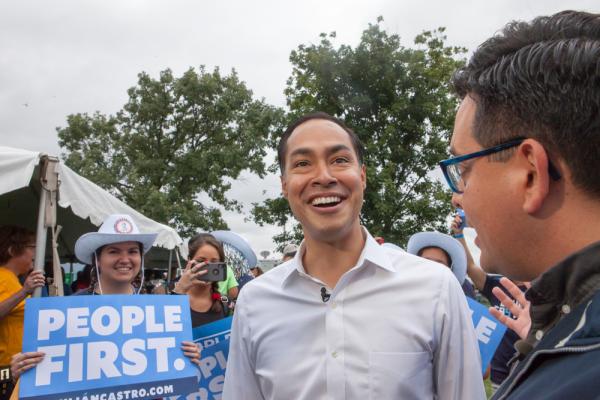Nov 20, 2019
In the second season of The Soul of the Nation, Jim Wallis is sitting down with some of the presidential candidates to discuss how their faith informs their work. Following is a transcript of Wallis’ interview with Julián Castro, discussing Castro’s Catholic faith and upbringing, why Democrats should talk more about religion, and more.
Read the Full Article

Already a subscriber? Login
